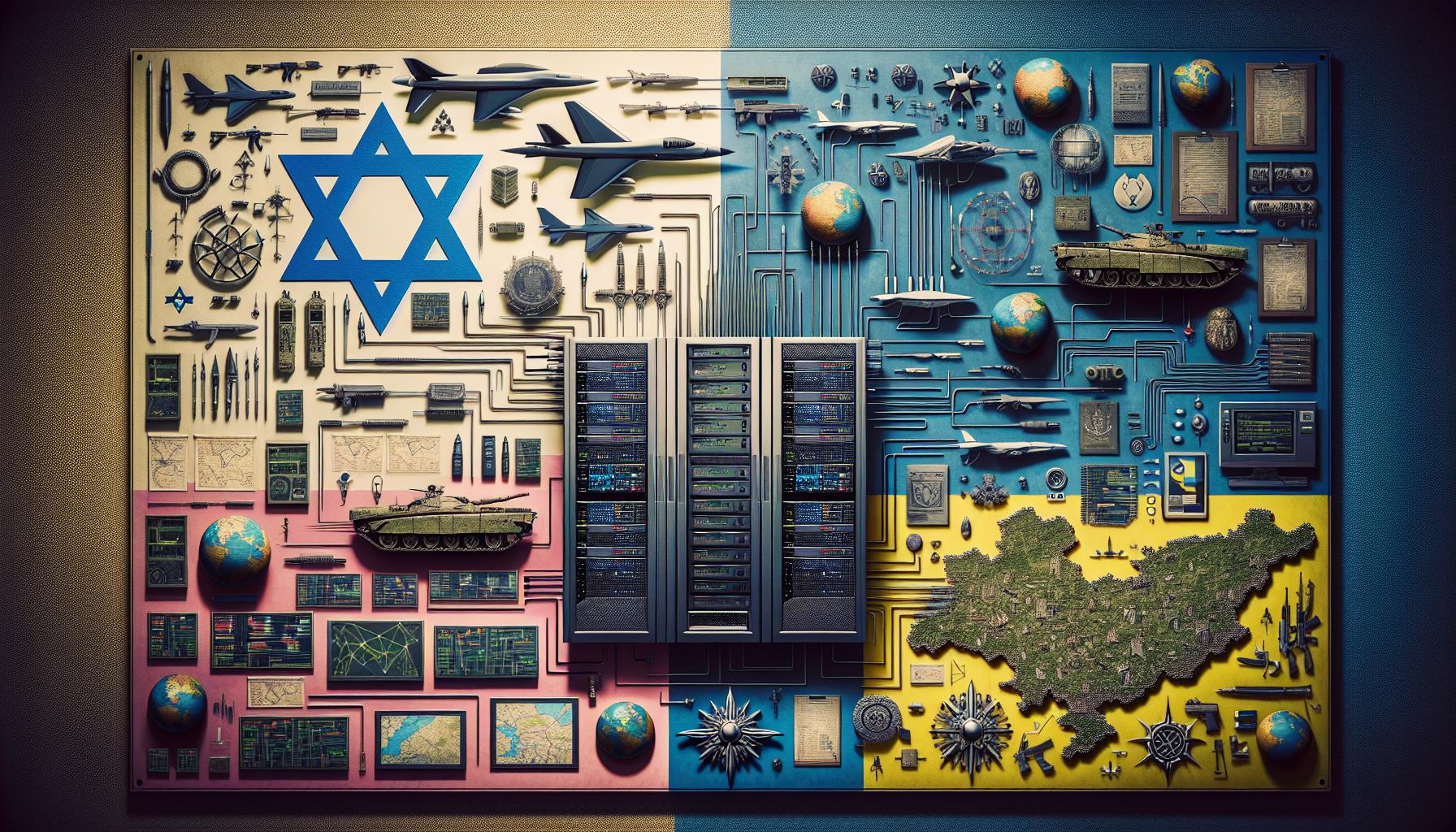The Role of AI in Modern Conflicts
In the ongoing conflicts in Israel and Ukraine, artificial intelligence (AI) is playing a crucial role in shaping the battlefield dynamics. Advanced technologies, including AI-driven drones and robots, are being employed for both offensive and defensive purposes. These innovations have introduced new dimensions to warfare, offering significant advantages in terms of precision and efficiency. However, they also raise serious ethical and moral questions about the use of autonomous systems in combat.
In Ukraine, the war has seen the deployment of AI technologies to enhance military capabilities and gather intelligence. AI systems are being used to analyze vast amounts of data to predict enemy movements and assess threats in real-time. Similarly, in Israel, AI-driven systems are employed to bolster defense mechanisms and conduct targeted operations. These developments highlight the dual nature of AI in warfare, presenting both opportunities and challenges for military strategists and policymakers.
Ethical and Strategic Implications
The integration of AI into military operations has sparked a global debate on the ethical implications of autonomous weapons. The potential for AI systems to make life-and-death decisions without human intervention raises concerns about accountability and the potential for unintended consequences. As these technologies become more prevalent, nations are grappling with the need to establish clear guidelines and regulations to govern their use in conflict scenarios.
Moreover, the strategic impact of AI in warfare cannot be underestimated. The ability to leverage AI for strategic advantage is becoming a key factor in the success of military operations. However, this also means that countries lagging in AI development may find themselves at a significant disadvantage. The race to develop and deploy AI technologies in warfare is intensifying, with major powers investing heavily in research and development to maintain a competitive edge.
Global Attention and Focus Shifts
The conflict in Ukraine, while ongoing, has seen a shift in global attention due to the recent escalation of tensions in the Israel-Gaza region. Ukrainian President Volodymyr Zelensky has expressed concerns that the Israel-Gaza conflict is diverting focus away from Ukraine’s struggle against Russian aggression. This shift in attention highlights the complex interplay of global conflicts and the challenges of maintaining international support and awareness.
Despite the shift in focus, the situation in Ukraine remains critical, with the country facing a challenging winter and ongoing military engagements. The international community continues to monitor developments closely, providing support and assistance to Ukraine in its efforts to resist Russian advances. The use of AI in these conflicts underscores the evolving nature of warfare and the need for continued vigilance and adaptation to new technological realities.
Summary
- AI is significantly impacting warfare in Israel and Ukraine, offering both advantages and ethical challenges.
- The use of AI technologies raises important questions about accountability and the potential for unintended consequences.
- Global attention has shifted towards the Israel-Gaza conflict, impacting the focus on Ukraine’s ongoing war with Russia.
- The strategic importance of AI in military operations is driving nations to invest heavily in its development and deployment.
For more detailed insights, you can explore the following resources: –ZDFmediathek on AI in Warfare–BBC News on Ukraine and Israel-Gaza Conflict
